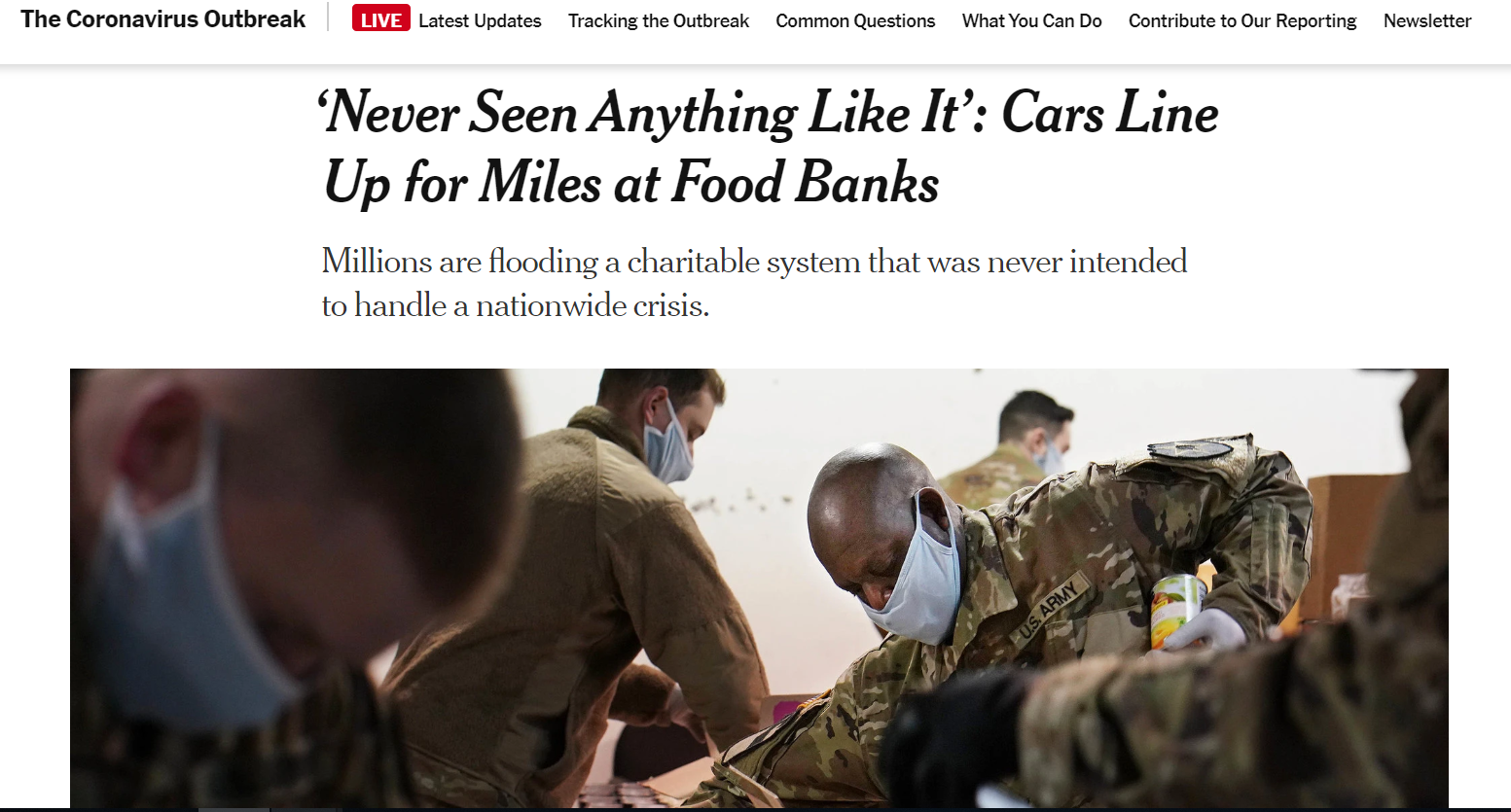Corruption, lobbying, corporate malfeasance, and frauds: a weekly unconventional selection of must-read articles by investigative journalist Bethany McLean.
No, this isn’t about financial malfeasance, and it’s not about the corona-crisis. But it’s lovely, and we all need a dose of loveliness right about now:
Ok, back to regular programming: Doom, gloom and all things horrible.
The positive story about the lockdown is that we’ve gone from an estimate of 2 million Americans dead by the end of the summer to…60K. That is remarkable.
The less positive story is that the cost has been beyond staggering, and that cost being borne by those in our society who can least afford it. This is a very cruel virus indeed.
Onto brighter things! So we won’t be able to leave our homes, and soon, we won’t have to talk because AI will read our brain waves. I don’t know about you, but I’m beginning to think I like the past.
The ProMarket blog is dedicated to discussing how competition tends to be subverted by special interests. The posts represent the opinions of their writers, not necessarily those of the University of Chicago, the Booth School of Business, or its faculty. For more information, please visit ProMarket Blog Policy.









